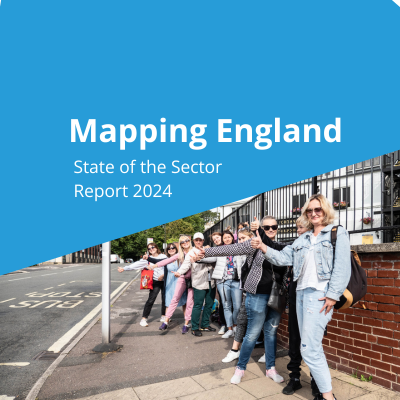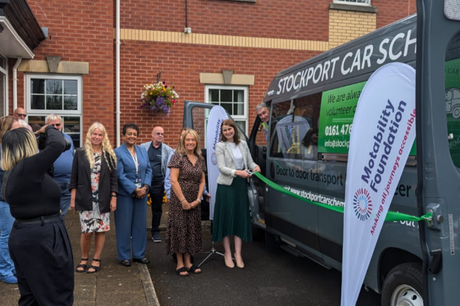
CTA reflections from the Labour Party Conference
CTA reflections from the Labour Party Conference
Nick and Caroline from the England team recently went to the Labour Party conference in Liverpool, to hear from the new Government and ensure Community Transport is considered in in the development of new policies.
It was a huge event and there were numerous stakeholders from industry, charities, unions and research organisations looking to influence the direction of policy. We were pleased to meet up with many colleagues from the Sustainable Transport Alliance for a photocall on a rainy Albert Docks, as well as attending busy and interesting sessions put on by NCVO, IPPR, the Fabian Society and others. As it was the first the Labour Party conference in government for 14 years there was a celebratory atmosphere, but the content of the sessions reflected the many challenges facing the country.
Community Transport was brought up in discussions of bus reform, new mayoral and combined authority areas and access to health, amongst other topics. However, Local Government, public service and bus reform may all have implications for Community Transport Operators. Below are some of the key themes from the fringe events.
Devolution is central
The English Devolution Bill was announced in the King Speech and is expected to grant new powers to Combined Authorities and Mayoral areas, to allow wider local decision making. New devolution deals are already being struck ahead of the Bill, and the idea of locally controlled budgets was a red thread connecting many of the topics discussed at the conference, including transport, health, education and local economy. Potentially this allows a place-focused approach where English Combined Authorities can work without departmental silos, driven by local priorities. However, it remains to be seen how these Combined Authorities work with existing Local Government and whether they will have sufficient funds to genuinely tackle local need.
Funding remains scarce, but there will be more long-term settlements
“It’s nice to see such a good turnout today – that normally means people are expecting new money or free food. I hope there’s some free food.” So said Local Government minister Jim McMahon MP, attempting to dampen expectation at a session on the future of Local Government. However, later he spoke about potential emergency funds for Councils in financial difficulty and said that Local Government needs to be solvent if devolution is to work. Whilst it appears unlikely that there will be scope to significantly increase Local Government funding in the Autumn budget, the case for longer term funding deals for Local and Regional Government was frequently made. CTA make a similar case for longer term funding from Local Authorities in our manifesto, and it is hoped that that greater certainty in Local Government settlements leads to a similar trend in grants and contracts.
Prevention is king
In the absence of increased funding, many sessions focused on preventative services, to reduce demand on overstretched health and Local Government services. Sessions looked at technological approaches and how public services ‘can do more with less’ but it was clear that services that helped improve physical and mental health were required to reduce the strain on the system. Community Transport has shown it has considerable preventative value, reducing isolation, improving health and providing access to services.
Social value was frequently mentioned and the Procurement Act, which requires a greater focus on social value than the discretionary Social Value Act 2012, will be introduced in February 2025. Providing evidence of social value and impact is therefore vital, and CTA will continue to develop support for Community Transport Organisations to show the importance of what they do.
Locally planned buses
Bus franchising was a hot topic at the conference, with several sessions noting the success of the Bee Network in Geater Manchester, as well as the moves towards a franchised system in other Mayoral areas. Changes to Department for Transport guidance on Bus Franchising, which open up franchising to non-Mayoral areas, are currently out for consultation. CTA will be responding to this consultation and working with those Authorities that chose to adopt a franchising system, to ensure Community Transport is included in this planning. However, it was notable that franchising will not be suitable for all areas, particularly rural areas where a lack of population density means that fewer routes can turn a profit. In these areas a revised Enhanced Partnership approach may be more appropriate, and CTA will push for guidance to ensure that Community Transport can have representation on these bodies.



